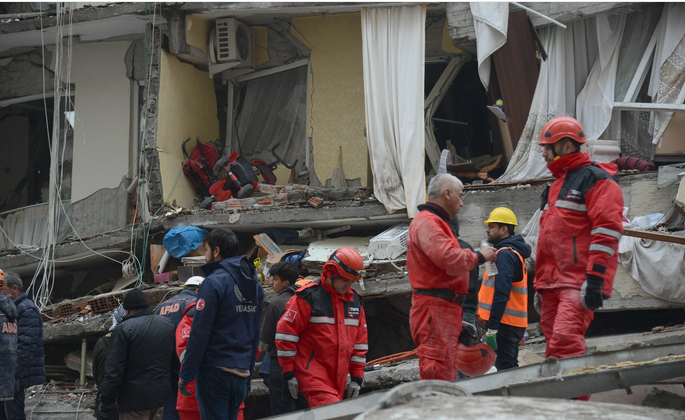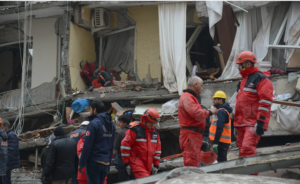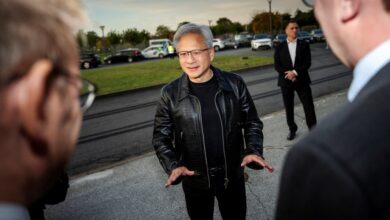Supporting earthquake relief for Syria and Turkey


The earthquake struck at 3:41 a.m. local time and was followed by more than 20 aftershocks, the strongest measuring at 5.4 magnitude. The epicenter was in the village of Nusaybin, in Mardin province, about 500 miles southeast of Ankara, the capital.
According to CNN, it was the strongest earthquake to hit the area in the last 100 years. The rising death toll and infrastructure damage caused by the initial earthquake were exacerbated by a second, magnitude 7.7 earthquake not long after.
More than two thousand people have died and thousands more have been injured in the conflict. The fighting has displaced millions of people, many of whom are living in camps without access to basic necessities. The humanitarian crisis is only getting worse, with no end in sight.
The region is facing natural and political crises that will make relief work even more important. Plummeting temperatures, snow, and rain storms are ushering in a frigid winter to both rural and urban homes in the area, and Syrian communities in the north already contend with a geopolitical humanitarian crisis caused by years of violent conflict.
The psychological impact of the Syrian civil war on some people is grave, according to Angela Kearney, a UNICEF representative in Syria. Many people, including children, are displaced and remain outside in streets and open areas. The government of Syria closed schools and universities for today, and some are being used as shelters.
For this reason, established networks of aid organizations have quickly moved in to address immediate needs. These organizations are able to provide essential supplies and services to those who have been affected by the disaster. They also have the experience and knowledge to coordinate relief efforts effectively.
Organizations all over the world are helping with relief efforts for those affected by the disaster. They are providing emergency rescue and medical aid and are calling on the global community to help support their work. This disaster has affected many people and these organizations are doing everything they can to help.
In the immediate aftermath of the earthquake, local authorities are focused on life-saving rescue efforts in the rubble of thousands of collapsed buildings, including schools, hospitals, and apartment buildings. In support, NGOs, nonprofits, and local organizations are filling gaps in medical and social services. These organizations are providing essential supplies, coordinating volunteers, and collecting donations.
CARE is an international nonprofit focused on ending poverty, providing access to education, and addressing humanitarian crises on-the-ground. The organization has mobilized its team in the city of Gaziantep to respond to the worst affected areas in Turkey and Northwest Syria. On-the-ground teams and partners have taken on the task of delivering blankets, food, mattresses, tents, and other non-food items to people in need amid harsh weather conditions.
CARE’s work is vital in areas like Turkey and Northwest Syria, where poverty and humanitarian crises are especially prevalent. The organization’s on-the-ground teams are doing important work in delivering necessary supplies to those in need. Amid harsh weather conditions, they are bringing blankets, food, mattresses, tents, and other non-food items to people who desperately need them.
UOSSM is an international nonprofit providing relief and medical care to those affected by Syrian conflicts. The organization issued a statement requesting emergency funds for aid and rescue resources, facing an overwhelming amount of need in local hospitals and medical facilities. UOSSM has been working in Syria since 2012 and has provided medical assistance to over 3.6 million Syrians. The organization has over 100 volunteers, including medical personnel, and has worked in over 50 medical facilities.
The Syrian American Medical Society (SAMS) is a global medical relief organization providing resources and aid to communities affected by conflict in Syria. SAMS started a specific fundraiser for earthquake relief, which has already reached $78,000 of its $100,000 goal. Donations go to supporting hospitals and medical facilities, including evacuating patients, providing emergency aid, and other medical care.
The International Blue Crescent Relied and Development Foundation (IBC) is a humanitarian aid and development NGO based in Turkey, providing “emergency relief, rehabilitation, development, and risk mitigation to international communities.” The organization has a network of teams operating in Kilis, Gaziantep, Kahramanmaras, and Sanlıurfa, many of which are already assisting local authorities with rescue attempts. IBC is committed to helping those in need, and will continue to provide aid and support to communities affected by disaster.
In a public statement, the organization said it would use monetary donations to fund “tens of thousands of tents, heaters for the tents, tens of thousands of blankets, thermal clothes, ready-to-eat food for at least to 5,000 people, and basic first aid kits.” The organization is asking for monetary donations to help fund the supplies they will need. With winter coming, they want to be prepared to help as many people as possible. They are requesting donations to help purchase tents, heaters, blankets, thermal clothes, food, and first aid kits.
UNICEF field office teams have already been dispatched to assess the situation in Turkey and Syria and provide immediate relief items and begin a quick rapid response. They will focus on four areas of need: water and sanitation, health, nutrition, and education. In addition to providing relief items, UNICEF will also work with local partners to provide long-term support.
Water, sanitation, and hygiene (WASH) is a critical issue in any disaster or conflict. WASH includes assessing impact on main water stations, and interruption/damages in services, supporting water to those displaced. In the wake of a disaster, WASH can be a lifesaving intervention.
’s needs and providing them with support and care, is a crucial part of the humanitarian response to the Syrian crisis.
Child protection is a crucial part of the humanitarian response to the Syrian crisis. This involves assessing separated or unaccompanied children’s needs and providing them with support and care. Without this vital assistance, many more children would be at risk of exploitation, abuse and neglect.
, is critical in a natural disaster
Education is critical in a natural disaster for assessing damages in schools and if schools are being used as shelter. Education helps officials determine the best course of action for protecting citizens and rebuilding infrastructure.
is an international humanitarian medical organization
Doctors Without Borders / Médecins Sans Frontières (MSF) is an international humanitarian medical organization. The organization provides medical assistance to people affected by armed conflict, epidemics, natural disasters, and exclusion from health care in over 70 countries.
Doctors Without Borders is an international humanitarian organization that responds to medical needs in disaster and conflict areas. The organization is currently treating patients in Idlib, northern Syria, and are coordinating emergency medical kits and additional support to health agencies and other facilities.





